- July 12, 2025
- 10:48 am
In 2025, organic farming is no longer a simple agricultural procedure but a rapidly expanding global revolution reshaping agriculture and food production. Nearly 99 million hectares of agricultural land are under organic cultivation worldwide, which represents a significant increase from 15 million hectares in 2000. The global turnover for organic food and drink sales reached over 136 billion euros in 2023. This represents a significant increase in the market, with India becoming an important player.
The Rise of Organic Farming: Scale and Growth

The organic farming sector is experiencing significant growth globally due to increase in consumer demand for healthy food and growing awareness of environmental impact of conventional farming. This growth is reflected in both the area of land under organic cultivation and the number of organic producers. Sales of organic food and beverages is also experiencing a phenomenal increase.
Latin America and Africa have seen the most significant growth in terms of organic farmland area, while Europe has seen a substantial growth in the number of orgnic producers and consumers. Uruguay, Costa Rica and Argentina are among the countries with the highest proportions of organic land Africa has seen the highest percentage increase in organic farmland with a 24 percent rise to 3.4 million hectares. European organic farmland has increased by 4.1 percent, adding 0.8 million hectares
Why Organic Farming Matters More Than Ever in 2025
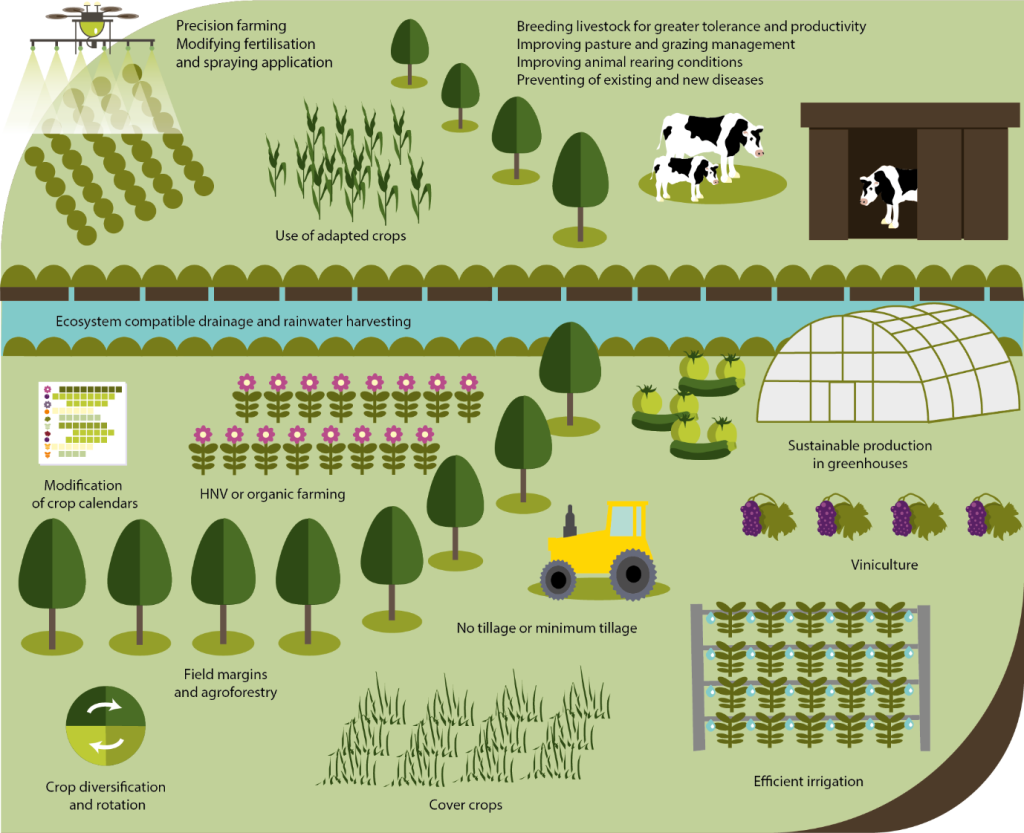
Organic farming is gaining popularity due to increased awareness of its environmental and health benefits. Concerns about the impact of conventional farming on soil health, biodiversity, and water quality, alongside the rise of lifestyle related diseases, are driving this shift. Let us look at all these reasons in detail.
Climate Change Mitigation: Organic practices such as minimal tillage, use of natural composts, and avoidance of synthetic fertilizers enhance soil carbon composition and reduce greenhouse gas emissions, making organic farms more climate-friendly.
Soil Health and Biodiversity: Using organic matters and promoting crop rotations and cover cropping, organic farming fosters rich microbial life and supports beneficial insects and pollinators, crucial for ecosystem balance.
Food Security and Safety: Organic farming avoids synthetic chemicals and genetically modified organisms (GMOs), offering consumers safer, chemical-free food with higher antioxidants while supporting long-term soil fertility and productivity compared to conventionally grown crops.
Innovations Driving Organic Farming Forward
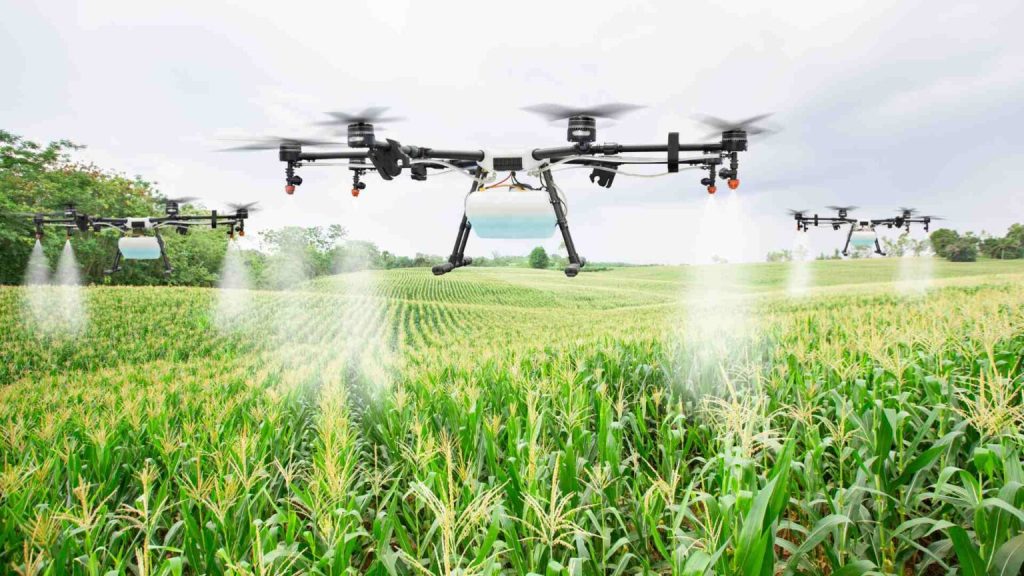
Innovations in technology and practices are driving advancements in organic farming, making it more efficient, sustainable and productive. These includes precision agriculture techniques, AI powered tools, biological pest control, and improved soil health management.
For example, platforms like Farmonaut provide real-time field-specific recommendations that help reduce input waste and measure carbon footprints, aligning with international sustainability goals.
AI algorithms analyse data from various sources like sensors, drones, and satellites to provide farmers with real time inputs into soil health, crop growth and pest management.
IoT-based soil sensors help monitor soil conditions like pH levels, moisture, and nutrient availability crucial for informed organic farming practices. complete
Emerging Trends Shaping Organic Agriculture in 2025
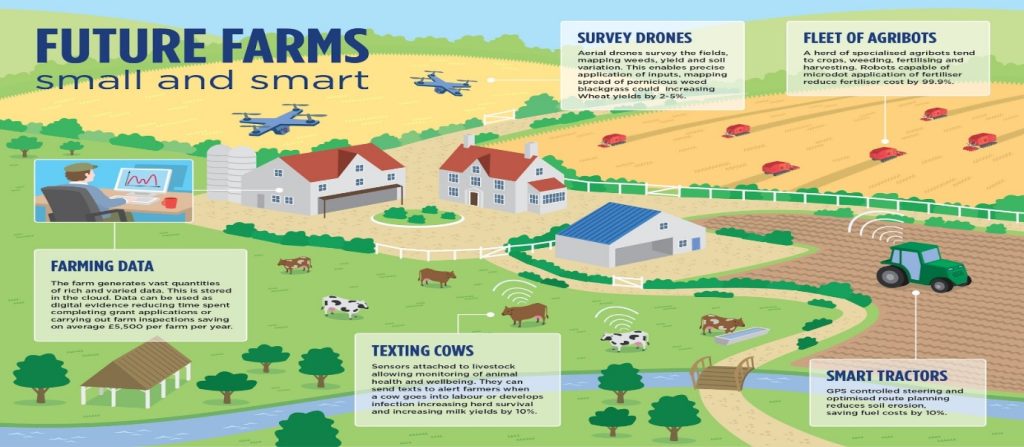
Several key trends define the organic farming landscape this year such as
1.Regenerative Agriculture—This approach focuses on rebuilding soil health, increasing carbon content, and restoring ecosystem balance through practices like cover cropping , rotational grazing, and no-till farming.
2.Hybrid Certifications
New certifications measuring carbon content, water use, and biodiversity alongside organic credentials are gaining traction.
3.Expansion in Developing Regions--Latin America, Africa , Europe, Asia including India are rapidly increasing organic farmland, driven by supportive policies and market opportunities.
4.Digital and Precision Tools
Use of AI, drones, satellite imagery, and data platforms enhances productivity and sustainability compliance.
Challenges and the Road Ahead
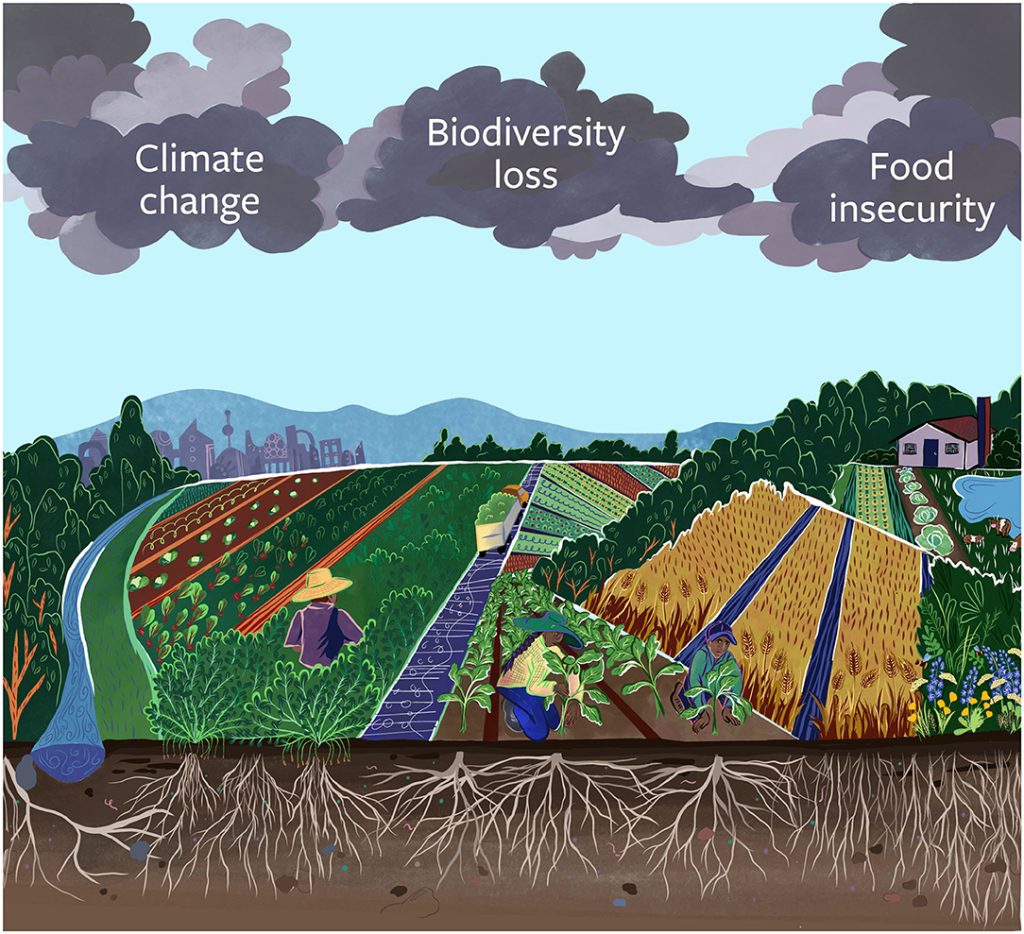
Despite its growth, organic farming faces challenges such as high production costs, lower yields, difficulty in pest and disease management and climate-related risk threaten production resilience. Additionally, organic yields can sometimes be lower than conventional farming, requiring continuous innovation to balance productivity and sustainability.
However, supportive policies like financial assistance, research and development, training and education, infrastructure development, market support and consumer awareness campaign aims to increase organic farmland to 25% by 2030, and global sustainability frameworks are helping overcome these barriers.
The Economic Impact and Market Outlook
The organic food market is experiencing robust growth, with global sales reaching nearly €136 billion in 2023 and projected to grow steadily. Increasing consumer demand for natural, chemical-free food is driving farmers worldwide to adopt organic methods. The global organic food market is poised to reach $586.02billion by 2032 with a compound annual growth rate of 10.87%
Conclusion: Organic Farming as a Pillar of Sustainable Food Systems
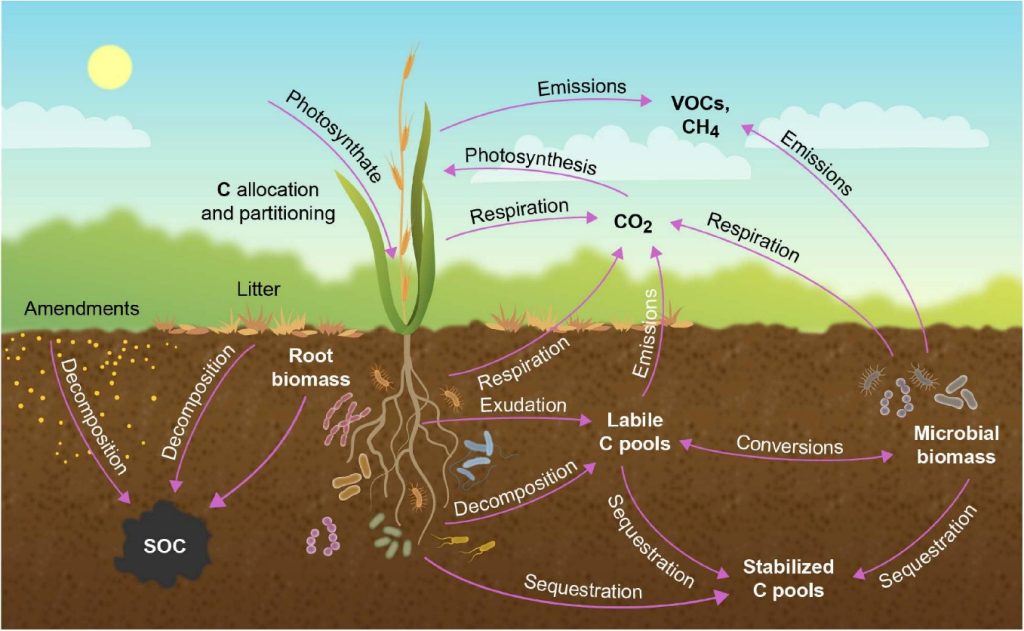
In 2025, organic farming is a crucial pillar of eco-friendly food systems that can feed a growing global population without compromising on the food quality. By combining traditional organic principles with cutting-edge technology and regenerative practices, the sector is not only expanding in scale but also improving in efficiency and impact.
For farmers, consumers, and policymakers alike, embracing organic farming is a vital step toward a sustainable future—one where food production nurtures the earth, supports biodiversity, helps in soil conservation and delivers healthy, safe food for all.
Organic farming in 2025 is a vital component of sustainable food systems. Addressing the challenges associated with organic farming and supporting its adoption is crucial for building a healthy food system.
Feature Post
Popular Post
Browse Category
Subscribe News Letter